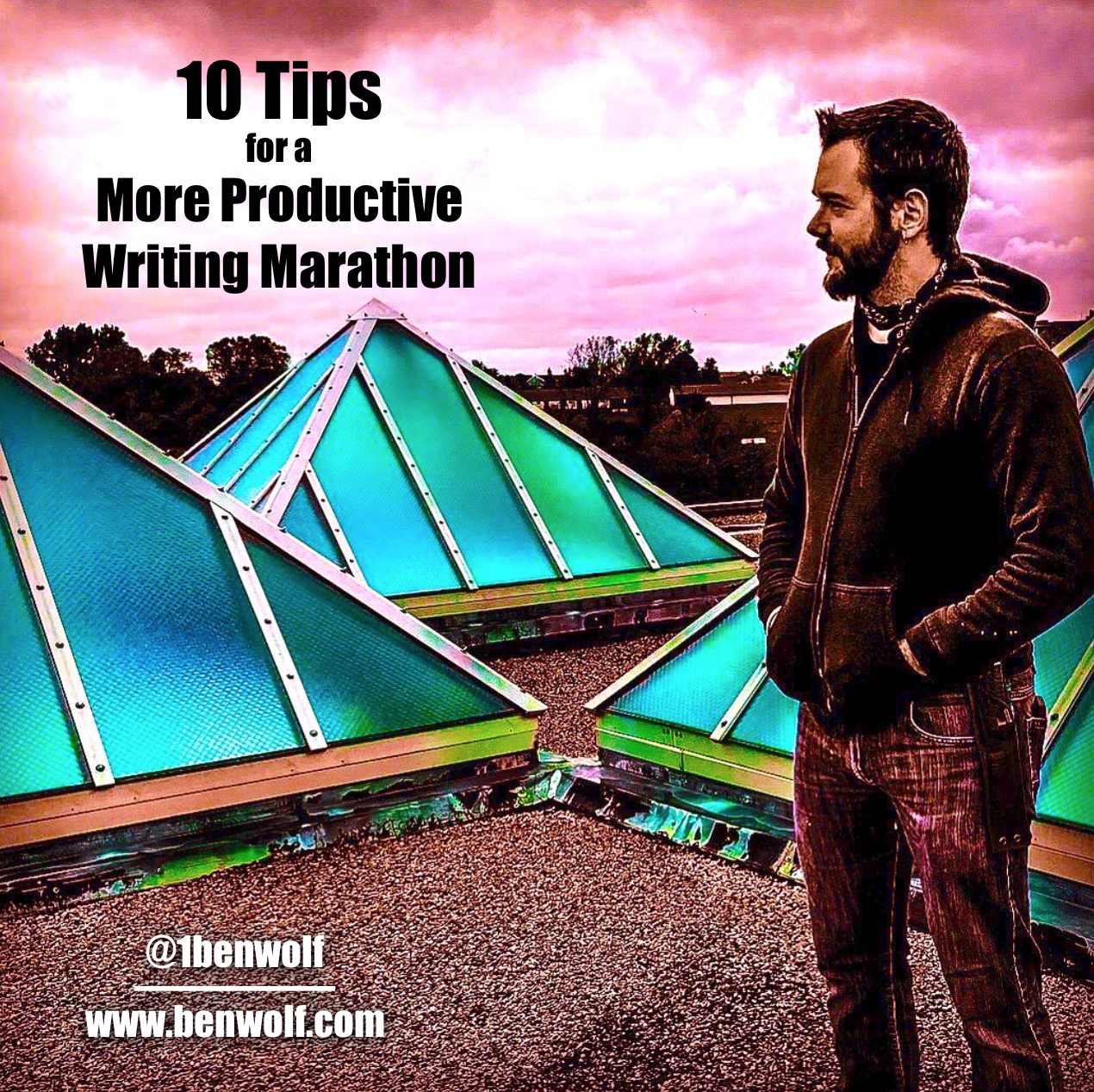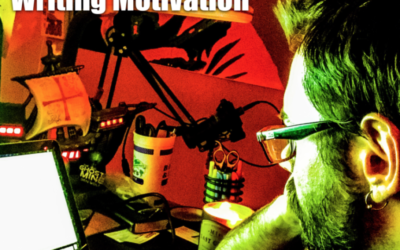He didn’t want to blow his chance…
…so my friend Connor asked me for help.
He’d managed to snag some extra time over a holiday weekend for a writing marathon.
He’s newer to the game, and since I’ve published 10-ish books as of this writing, since I wrote a 100k-novel in 34 days, and since I’ve written several more books beyond that, he asked my advice on how to maximize his time.
On the fly, I came up with 10 Tips for a More Productive Writing Marathon, and I shared those with Connor.
Turns out, I liked my advice as much as he did, so I I’m adapting it into a blog post in case it could help others looking to do a writing marathon.
So here we go…
10 Tips for a More Productive Writing Marathon
1. Make sure your spouse is on board with what you’re trying to do.
Getting your spouse (or other important people in your life, especially if you live with them) to “buy in” to your plan to do a ton of extra writing is crucial. After all, you still have to live with this person after your writing marathon is complete.
It’s important that you make sure (s)he knows that even though you’re off “normal” work, you’ll still be working. That will help establish the necessary boundaries in advance, and once you’ve agreed on it, you can both hold up your respective ends of the agreement.
Don’t worry. Your spouse is cool. That’s why you married them in the first place. (S)he’ll get it.
2. Decide your work hours in advance.
(This will help with #1.) By determining this in advance, you’ll have a deadline each day, and the hunt for words will help encourage you to do the work instead of dawdling during your writing time.
3. Turn off your phone, or at least put it on silent.
Then set it aside, out of easy reach. If it’s not nearby, you’ll find yourself reaching for it less, and you’ll gradually retrain yourself not to grab it all the time when you’re writing. (This has been an off-and-on problem for me, anyway.)
Consider turning off your wifi as well so you can’t frivolously surf the ‘net/check your FB/Instagram/Twitter feeds. It may not be a bad idea to be in a different room than your pets, too, if they tend to be a distraction for you.
4. Stock up food and drinks in advance.
Make sandwiches or have food otherwise ready to go so you can inhale it and then get back to work. This goes for beverages too. Easy and accessible helps.
5. Take breaks if you need to, but I recommend keeping them short.
This goes along with #4 pretty well. Obviously, if you actually need a break, take it. The point of marathoning is to marathon, though, so try not to take too many.
6. If the words aren’t coming, you probably need to beef up your outline.
This is good advice, even if you are a pantser/discovery writer. If the story isn’t flowing, it usually means you don’t have enough information either written down or in your head to continue the story.
My suggestion here is to briefly chart your course through the rest of the scene, or perhaps even the rest of the chapter, but in more specific terms.
That way, you keep writing, but you’re writing notes in your outline instead. That usually helps me break through writers block.
7. Set daily goals or targets.
A goal is measurable (5,000 words per day). A target is general and not as measurable (I want to write as much as possible).
If you want to set daily word count goals, go for it, but if your aim thus far has just been to write consistently, and especially if that has been going well, a word count goal may not be what will actually motivate you to succeed.
You know yourself as a person, so if a specific word count goal is not motivational for you, then go with a looser target instead.
8. In fact, try to avoid checking your word count at all. Just write.
It’s a distraction, and it’ll take you out of the story (or out of the flow of writing), so just leave it alone.
You can, however, check it close to the end of your writing time that day, and if you’re close to the end of a chapter, try to finish the chapter. Or if you’re a few hundred words shy of a big number (4k, 5k, or whatever), aim to hit that before you call it quits. It’s great to end with little victories like that.
9. After you’re done writing, have a “cool-down” period.
For me, this is all about setting myself up for success for my next writing time. I always write notes about what happens next in the manuscript, even if there’s already an outline there.
The difference is that I’m going into even more specifics beyond just the trajectory of the story–I’m writing bits about character interaction (sometimes even some dialogue), ideas to enhance the conflict, and specific descriptions of what happens next (settings, new characters, interruptions, etc.)
I do that right away because it’s fresh in my head right then, and it’s easy just to splatter a few words (or sometimes a few hundred, depending) on the page before I fully call it quits. The next day, it’s always WAY easier to pick back up again where I left off.
10. It’s cliche, but have fun.
Write wild and colorful stuff. Let your imagination run rampant, and then write all of that down. If you’re not having at least SOME fun while you’re doing it, what’s the point?
So have fun. 🙂
Thanks for reading my 10 Tips for a More Productive Writing Marathon. What tips would you add that have helped you in your writing marathons? Drop them in the comments below.





Regarding #5 – taking a break – for a variety of reasons, I really NEED to take occasional brain breaks when I write. I need to do something simple that doesn’t require much thinking. I would recommend having a list of things to do and a timer so you don’t get pulled into your break activity too long. My list would include: coloring, doing an easy puzzle on an app on my phone, getting the mail and sorting through it, doing Wordle, scan receipts into Fetch, and checking what Pinterest recommends for me. In keeping with your suggestion to have everything you need close at hand (which is fantastic advice), make sure to have everything you need for your break activities within easy reach.